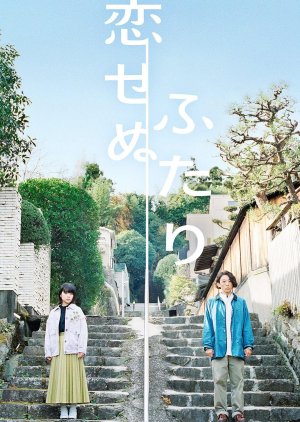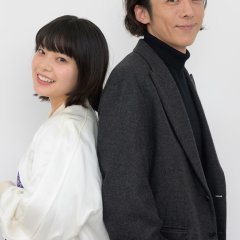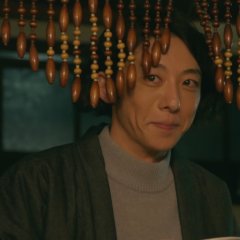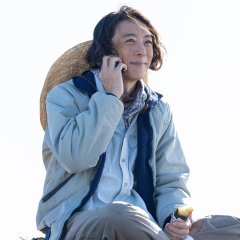L'histoire de deux personnes qui sont aromantiques et asexuelles et qui commencent à vivre ensemble. Sakiko trouve difficile de vivre dans une société qui part du principe que les gens tombent amoureux les uns des autres. Elle rencontre Takahashi, un employé de supermarché, alors qu'elle va soutenir la campagne "Tomber amoureux" de son collègue de travail. Elle est surprise lorsqu'elle l'entend dire qu'il y a des gens qui ne tombent pas amoureux. Comme la mère de Sakiko ne cesse de la presser de se marier, elle décide de déménager et de louer un appartement avec son amie, mais celle-ci se désiste à la dernière minute après s'être réconciliée avec son ex-petit ami. Alors que Sakiko est sur le point d'abandonner, elle finit par vivre avec Takahashi sous le même toit en raison de leurs valeurs similaires en matière de romance. (La source : English = MyDramaList || Traduction = ManUtiavN at MyDramaList) Modifier la traduction
- Français
- Русский
- Português (Brasil)
- Português (Portugal)
- Titre original: 恋せぬふたり
- Aussi connu sous le nom de: Two People Who Can’t Fall in Love
- Réalisateur: Doi Shohei
- Scénariste: Yoshida Erika
- Genres: Vie quotidienne, Drame
Distribution et équipes
- Kishii YukinoKodama SakukoRôle principal
- Takahashi IsseiTakahashi SatoruRôle principal
- Hama ShogoMatsuoka KazuRôle Secondaire
- Kojima FujikoKadowaki ChizuruRôle Secondaire
- Kikuchi AkikoInozuka HarukaRôle Secondaire
- Kita KanaIshikawa MinoriRôle Secondaire
Critiques

Revolutionary
I can't even put into words the importance of this drama not only to me as an aroace person but as a whole. I have never in main stream media seen an aroace character let alone two aroace characters explored and developed in such a beautiful and caring way. I could go into extensive detail on why this drama and representation is so important but the review would incredibly long so I'll try and keep it as short and sweet as possible.The issues and also the joy in finding your aroace identity and living as an aroace in such an amatonormative world was explored so well in this drama. The exploration of Takahashi touch aversion has left me speechless, the way they handled it with such care. I've never seen touch aversion explored in the way that Koisenu Futari did and I think it will stay with me forever. One particular scene, which I won't go into detail due to spoilers, left such a massive impression on me and I think that's thanks to Takahashi Issei's portrayal and acting within the scene.
Everyone behind this drama went into it with such care and they handled everything so beautifully. You can tell that with how they explore even the hardest parts of finding and accepting your indentity and the reactions of those closest to you. It was hard to watch at times but it was necessary to see because so many aroaces experience the things that we see both Sakuko and Takahashi go through or even fear that they will go through that. So to see the hardest parts shown the way that Koisenu Futari showed us makes you realise that you're not so alone in your experiences and fears as you think you are.
What I loved about this drama the most was how I could see my own story reflected in both Sakuko and Takahashi depending on where in my aroace journey I was. I'm so grateful that this drama exists. Thank you to the writers, to the actors, to the producers, to everyone behind this drama for giving us this drama, for wanting to explore such an unrepresented identity and to do it with such love and care. This drama will stay with me forever.

so peaceful
Peace really is what I felt while watching Koisenu Futari. It's like watching your best and happiest dream unfold on repeat, just full of warm and contented feelings. One of the special people in my life is an aroace. She's a remarkable woman, gifted and strong, but also lonely and often feels misunderstood. I feel like I understand her a little bit better now after watching this drama. And while Issei Takahashi was the originating reason why I found Koisenu Futari, the theme is what made me determined to watch it.Don't we all want to live our best and happiest life? And what does that look like for each of us individually?
That's the question that both Takahashi-san and Sakuko have to answer for themselves. Takahashi always gave of himself to fulfill the expectations of his grandmother and of society. He lived in the same, in the now, and he never let himself think his life could be any different. He blessed Sakuko so much, freeing her to be her true self, teaching her that it's okay for her to be different no matter what anyone else said. And she returns that favor to him tenfold by helping him discover just who he wants to be and what he wants to do and equipping him to follow that dream.
Everyone goes into dramas with preconceived ideas of what it will be like. This drama was none of my preconceived ideas. I'd even settled on disliking Kazu-kun because he just seemed like someone who would annoy me. When in fact he also became such an integral part of Takahashi and Sakuko's development, and he grew and changed so much through the course of the drama. I didn't like Sakuko's sister, until I suddenly did. I thought some elements would end up being tropes and they weren't. And of course, the ultimate fear that the story would devolve into a love story, which it never did.
Koisenu Futari is perfect. Its value is so far-reaching and I hope it gains more traction and viewers. Thanks to Kaizen Subs for their hard work. Many thanks to the brilliant performances of Issei Takahashi and Yukino Kishii. The more I learn of Takahashi-san's filmography, the more I love him. He doesn't settle for the norm, but stretches boundaries. If you want another equally magnificent drama starring him, try Bokura wa Kiseki de Dekite Iru. Another hands' down favorite, only this time he plays a man who I believe is on the autism spectrum.























































